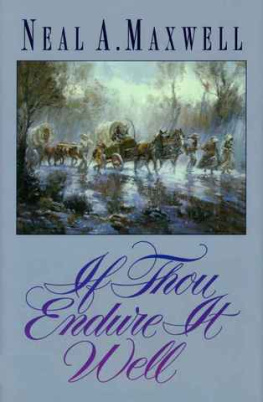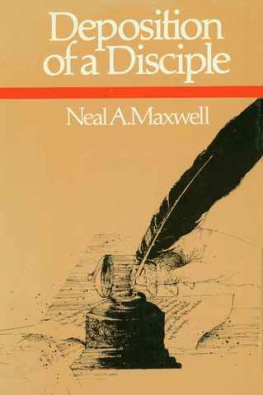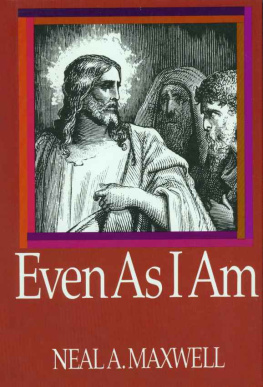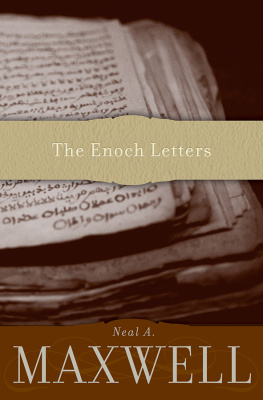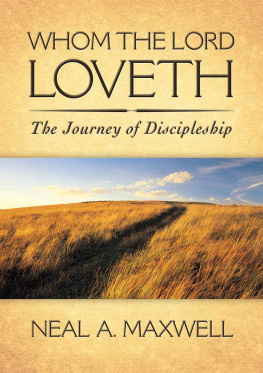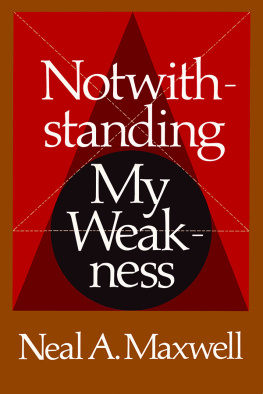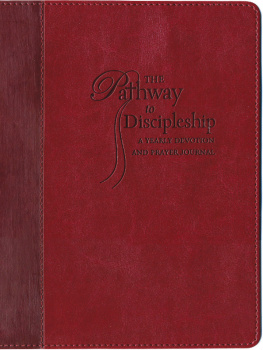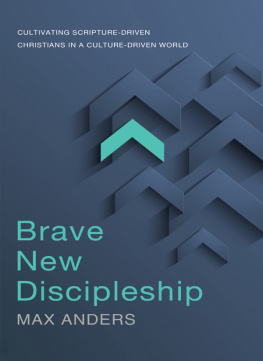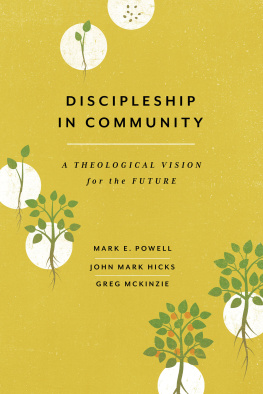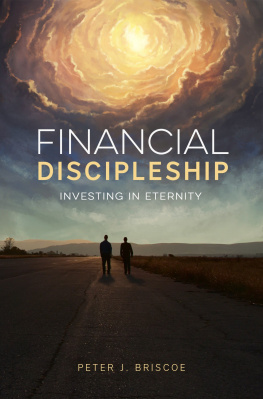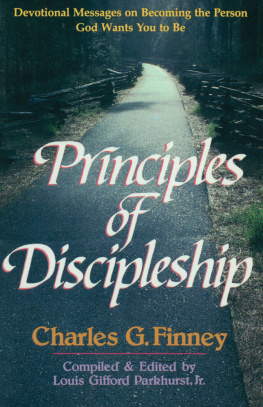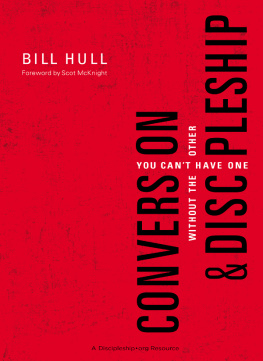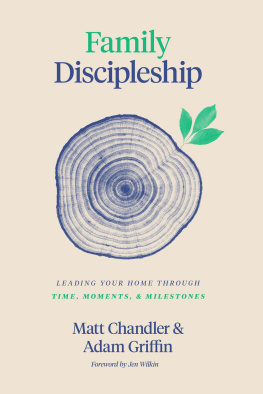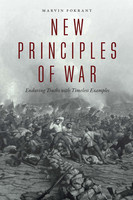If Thou Endure It Well
Neal A. Maxwell
1996 Deseret Book Company. All rights reserved. No part of this book may be reproduced in any form or by any means without permission in writing from the publisher, Deseret Book Company, P.O. Box 30178, Salt Lake City, Utah 84130. This work is not an official publication of The Church of Jesus Christ of Latter-day Saints. The views expressed herein are the responsibility of the author and do not necessarily represent the position of the Church or of Deseret Book Company. Deseret Book is a registered trademark of Deseret Book Company.
Acknowledgments
Since much of the "plodding" on this manuscript was done in the summer, Colleen, once again, was patient and understanding with time that might have been hers.
I express appreciation to Cory Maxwell for his encouragement and helpful comments, and to George Bickerstaff, whose editing was most beneficial. My gratitude goes to my secretary, Susan Jackson, for the extra efforts she expended once again. Her patience with detail as well as her competency were both much appreciated.
I am grateful to my friend H.E. "Bud" Scruggs, who in the earliest stage provided helpful reactions and suggestions. Also to my only daughter-in-law, Karen Bradshaw Maxwell, who reviewed the manuscript when it was ready for submission to the publisher and made excellent suggestions.
Perry Cunningham and Kristen Goodman helped me with the statistical charts and trends I used earlier in a Church Educational System broadcast to young adults. Their charts were later incorporated into this book. For their accuracy and perceptivity, my gratitude is likewise expressed.
This is not an official Church publication. The author alone is responsible for the content and its limitations.
Preface
As a much younger man, I accepted the scripturally underscored importance of enduring to the end. But that stern requirement was only superficially appreciated back then. Life has since underscored, again and again, what a high test enduring well is for us mortals. Moreover, it isn't just for old people, nor is it just something one does near the very end of the pathway of discipleship. It is, instead, an ongoing thing which varies from season to season and from experience to experience.
As if all this were not enough in itself, the challenge of enduring in the last days includes so many added challenges in this difficult world. For instance, the trends cited in the forepart of the book are like pythonscapable of squeezing spirituality out unless they are deliberately offset by serious discipleship. Furthermore, some gospel principles, once very pervasive in western culture, now must compete with the "play-dough principles" of permissiveness. The situation makes for high adventure. Thus while the doctrine of enduring is like a diamond with many facets, this is an attempt to turn that diamond around, so that the light of the gospel can be played upon its different dimensions.
Enduring to the End
To endure is greater than to dare (William Makepeace Thackeray).
When the Latter-day Saints make up their minds to endure, for the kingdom of God's sake, whatsoever shall come, whether poverty or riches, whether sickness or to be driven by mobs, they will say it is all right, and will honor the hand of the Lord in it, and in all things, and serve Him to the end of their lives, according to the best of their ability, God being their helper. If you have not made up your minds for this, the quicker you do so the better. (Brigham Young.)
The divine direction given to a suffering Prophet Joseph Smith to "endure it well" should likewise entice serious disciples and cause them to examine those three precious and instructive words.
To endure means not only to last but also to bear up under stress, to "hold fast," even "valiantly," while maintaining the correct course set by God (see D&C 121:8, 29).
The word it refers to the configuration of Joseph Smith's special adversities and afflictions, which of course were added to the general challenges of mortality itself. Each of us has his own customized it with an ample supply of individualized tutoring and stretching challenges that are to be confronted.
The word well in this instance means performing with "grace under pressure" while being of good cheer, including coping with indignities and afflictions, as did Job, without "[charging] God foolishly" (see Job 1:22).
The combined words endure it well thus connote unwearying persistence in discipleship, in fact, a "pressing forward" with "a perfect brightness of hope" (see 2 Nephi 31:20).
Following this relevant divine adjuration, "endure it well," the Prophet Joseph was given counsel that likewise is significant for us individually. First, the Lord provided Joseph with a needed sense of perspective, saying that "all these things" would be for "but a small moment" (D&C 121:7). Second, he made a humbling comparison, reassuring the suffering Prophet that he was "not yet as Job" (D&C 121:10). Along with this came the assurance that Joseph's enemies would ultimately fail as he finally would "triumph over all [his] foes" (see D&C 121:8, 11-22).
Furthermore, the adequacy of Joseph's remaining time in mortality was guaranteed and underscored: "Thy days are known, and thy years shall not be numbered less," because "there is a time appointed for every man, according as his works shall be" (D&C 122:9; 121:25). Joseph received no promise, however, of either immediate or total relief from adversity. Still more time was to be spent in Liberty Jailalong with persecutions and trials thereafter.
Concurrent with the reassurances, though then experiencing harsh abuses emanating from unrighteous political and military power, Joseph was given a starkly contrasting description of how God's power is to be exercised righteously (see D&C 121:34-46).
The foregoing counsel to the Prophet is for us likewise to heed in the midst of whatever we are called upon to endure. We need perspective as to the length of our trials; perspective as regards their comparative intensity; assurance that, if we are faithful, our enemies will not finally prevail, either; and assurance that life's timetable for us is likewise known to God, "according as [our] works shall be."
God said He would structure mortality to be a proving and testing experience (see Abraham 3:25; Mosiah 23:21). Clearly He has kept His promise and has carried out His divine intent. Therefore adversity must be part of the pattern rather than always an aberration. Therefore even our fiery trials, as Peter said, should not be thought of as being "some strange thing" (1 Peter 4:12). Hence throughout the varying lengths of our lives there is rolling relevance contained in the counsel to endure it well.
The challenges differ for each of us. Moreover, the configuration and weight of our own yoke of afflictions vary during the journey of discipleship such as in the differing seasons of our individual lives. Unvarying, however, is the reality that only by taking upon us the yoke Jesus assigns to us, and then enduring, will we learn most deeply of Him, love Him the more, and become more like Him (see Matthew 11:29).
Even though our yoke is tiny compared to His, the bearing process is the same. Still, some of us puzzle over the full meaning of the words, "For my yoke is easy, and my burden is light" (Matthew 11:30). True, as John wrote, "his commandments are not grievous" (1 John 5:3). Likewise, God is quick to bless us immediately in one way or another (see Mosiah 2:24). But the most profound relief waits to be claimed: our afflictions can be "swallowed up in the joy of Christ" (Alma 31:38). Only then the yoke and its burdens truly are eased.

